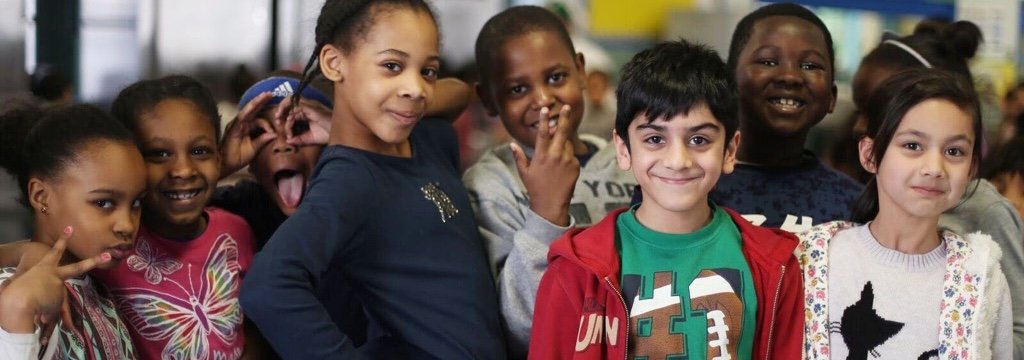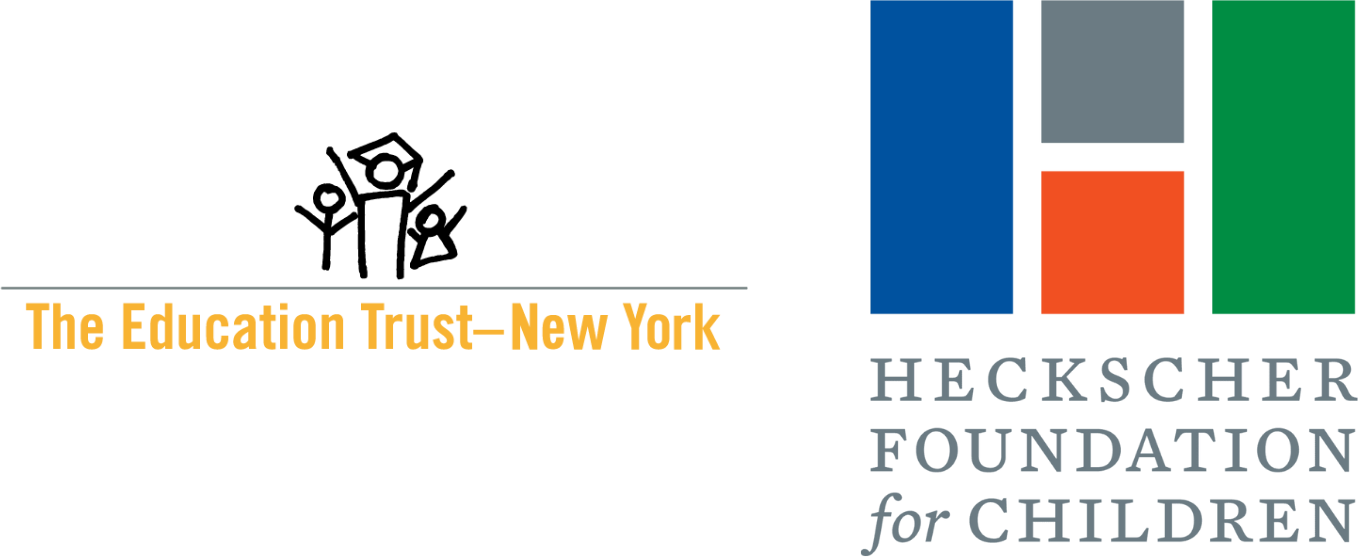Midwood High School
Grades: 9-12Our Insights
What’s Special
Strong science and math; racially integrated student body
The Downside
Large class sizes, little opportunity for individual attention
The giant, overcrowded Midwood High School has one of the best science programs in the city and a dizzying array of clubs and sports, everything from a marching band to a cricket team. Top students conduct research with mentors at nearby Brooklyn College, while struggling students get the help they need to be successful.
On the day of our visit, science students extracted DNA from peas in one class. In another, they dropped balls of different weights, repeating Galileo's famous experiment with high-tech equipment to graph acceleration. Students may take electives like robotics, forensics and anatomy, as well as standard courses like chemistry and physics.
In the science research program, we spoke to a girl who studied how parrots released from the Brooklyn College campus 20 years ago had adapted to the cold climate. Another student was researching how to make electrochemical devices like fuel cells and solar panels more efficient.
Michael McDonnell, who became principal in 2013, emphasizes a hands-on approach to science that seems to work with students of all abilities. McDonnell is a Midwood parent as well as longtime science teacher and former assistant principal at the school. He has a BA in meteorology.
Midwood is a welcoming, racially integrated school that attracts students from across Brooklyn. Nearly half are zoned for the school and the rest enroll in competitive, highly selective medical science and humanities programs. Students in the Medical Science Institute have the ability to take five years of science in four years and concentrate in research, robotics or medical issues. Students admitted to the Humanities Institute must take at least four years of foreign language, including one year of Latin. Ninth-graders in the zoned program may move to a selective program after their first year if teachers believe they can handle the workload.
The huge size of the school is both a plus and a minus. There is strong school spirit, and students told us that kids of different backgrounds and skills mix and mingle. The energy of the strongest students seems to raise the bar for everyone. The large enrollment means Midwood can offer more than a dozen Advanced Placement courses and lots of electives like robotics and journalism. It has a well-equipped library and up-to-date labs.
But students don't always get individual attention. One student told InsideSchools, "if you are self-motivated, you will do fine here, teachers will help you... but you have to be willing to say if you need help, because it's not going to just come and find you." There is human gridlock during class changes. Crowd control means that rules about using the bathrooms and not wearing hats are strictly enforced. There is a staggered schedule, and some students start at 7:15 a.m. Most seniors leave by 12:30 p.m. because the school doesn't have the budget to offer a full day of classes.
Midwood has a thoughtful approach to math and science that is designed so that students master critical skills before moving on. Students who arrive with weak skills take two years of living environment and two years of algebra before taking classes in other areas of math and science. Students for whom math does not come easily are still encouraged to take four years. They can take classes such as discrete math, which looks at topics they will use in real life, for example how much interest rates on a loan will cost you in the long run. On the other end, students who are higher achieving in math can accelerate by taking a one-year course that combines algebra 2 and pre-calculus.
McDonnell told InsideSchools that for some neighborhood students (including some recent immigrants from Pakistan who have interrupted formal education), the "doing part of science" is what works. In the first year of living environment, the focus is on skills development, particularly reading, math and the metric system. McDonnell told us that "there are more vocabulary words in a year of living environment than there are in a year of foreign language."
Changes to the English curriculum in response to Common Core—in particular a decision to use 70 percent nonfiction texts—caused division in the English department at Midwood. The English assistant principal, Suzanne Thomas, told us that the goal of these changes is to develop skills in research, argument and critical thinking so students can "read, write, listen and speak for the real world."
One teacher told us that while "being able to write an argument is good, that doesn't mean you should exclude fiction from the curriculum ... it's hard to meet all the Common Core expectations with regard to nonfiction and also get the students to read the great books that I passionately believe they need to be better human beings." On the day of our visit, students in one English class were going over unfamiliar vocabulary in Oedipus Rex.
The social studies classes we visited were lively and engaging. One integrated co-teaching history class studied the French Revolution and had an animated debate on what to do when leaders do not serve the interests of the wider population. Another class discussed the electoral system and analyzed the U.S. Senate elections. Teachers at Midwood—like most schools in the city—have five sections of 34 students. Administrators acknowledge that students may not receive individual attention, and in classes like English and social studies, teachers simply do not have time to read all student work.
Students at Midwood are spoiled for choice when it comes to sports and clubs. Students can compete in PSAL sports and also try ping-pong or golf. Other unique clubs include gardening, cycling, golf and ocean science. The school has an award-winning newspaper called the Argus. Many students participate in SING!, an annual musical theatre production.
College is the goal for most students at Midwood. Every year a handful of students go to Ivy League schools and most go to CUNY and SUNY colleges. The school has two college counselors, assisted by a secretary and an aide, for 850 seniors. “There are four people in the office at all times,” said parent coordinator Carol Ardito. Although regular guidance counselors and sports coaches also assist with college applications, administrators acknowledge that here also, students don't get a lot of individual attention.
SPECIAL EDUCATION: The school has a range of special education services including self-contained and integrated co-teaching classes for the approximately 360 Midwood students with Individualized Education Programs. Midwood strives to place students in the least restrictive environment. Special education students are encouraged to take CTE (career and technical education) courses along with graduation requirements. (Clara Hemphill, November 2014; updated with phone interviews, 2018)
Get more from InsideSchools
School Stats
Academics
Students
Race/Ethnicity
Safety & Vibe
Faculty & Staff
Teachers’ Race/Ethnicity
College and Career Readiness
Programs & Admissions
From the 2024 High School DirectoryLiberal Arts and Science Institute (K26H)
Program Description:
Students in the LASI Honors Academy track take course work leading to an Advanced Regents diploma. Students in the College and Careers track are able to enroll in one of our CTE programs (Pre-Engineering, Law, and Media Arts). Our college support track provides the academic support for students so that they are CUNY college-ready by the time they graduate from high school.
Humanities Institute (K26J)
Program Description:
Creative Writing, African-American Literature, American Classics, America in Vietnam, Journalism, Social Science Research, Constitutional Law, Criminal Law, Criminology, Civil Law, Law Internship, AP Psychology, AP Human Geography, Sociology, AP Capstone Seminar and Research, French, Spanish, Urban History, History of Sports in America, Mock Trial, Scientific Non-Fiction.
Medical Science Institute (K26K)
Program Description:
Biology (gifted and AP), Chemistry (gifted and AP), Physics (AP Physics 1, 2, and AP Physics with Calculus), Calculus Track (Pre-Calculus, AP Calculus AB, and BC Calculus), Statistics, Medical Issues, Environmental Sciences (AP Environmental Science), AP Capstone Seminar and Research, Science Research Program, AP Computer Science, New York State approved CTE program (Robotics and Mechatronics), Python programming.
Bilingual Haitian Creole Institute (K26L)
Program Description:
Biology, Chemistry, Physics, Calculus, Statistics, Medical Issues, Environmental Sciences, Intel Research; Ninth grade core subjects taught in bilingual Haitian Creole; Students then transition into our English as a New Language program.
Offerings
From the 2024 High School DirectoryAdvanced Courses
Algebra II (Advanced Math), AP African American Studies, AP Biology, AP Calculus AB, AP Calculus BC, AP Chemistry, AP Comparative Government and Politics, AP Computer Science A, AP Computer Science Principles, AP English Language and Composition, AP English Literature and Composition, AP Environmental Science, AP Human Geography, AP Macroeconomics, AP Physics 1, AP Physics 2, AP Physics C: Electricity and Magnetism, AP Psychology, AP Research, AP Seminar, AP Spanish Language and Culture, AP Statistics, AP United States Government and Politics, AP United States History, AP World History: Modern, Calculus (Advanced Math), Chemistry (Advanced Science), Math (College Course [Credited]), Physics (Advanced Science), Social Studies (College Course [Credited]), World Languages (Advanced World Languages)
Boys PSAL teams
Baseball, Basketball, Bowling, Cross Country, Football, Handball, Indoor Track, Lacrosse, Outdoor Track, Soccer, Swimming, Tennis, Volleyball, Wrestling
Girls PSAL teams
Basketball, Bowling, Cross Country, Flag Football, Handball, Indoor Track, Lacrosse, Outdoor Track, Soccer, Softball, Swimming, Tennis, Volleyball
Coed PSAL teams
Cricket, Golf
Read about admissions, academics, and more at this school on NYCDOE’s MySchools

Contact & Location
Location
2839 Bedford Avenue
Brooklyn
NY
11210
Buses: B103, B11, B41, B44, B44-SBS, B49, B6, B8, BM1, BM2, BM3, BM4, Q35
Contact
Other Details
This school is in its own building.
Was this information helpful?
Get more from InsideSchools
You may also like …
Urban Dove Charter School Brooklyn
Brooklyn, NY 11210


Comments